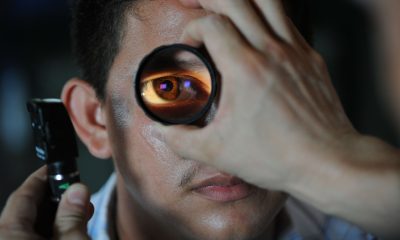ADHD or attention-deficit/hyperactivity disorder in adults can often start during early childhood and go undiagnosed. The key symptoms of this disorder include racing thoughts, forgetfulness or zoning out during conversations, and hyperactivity. An estimated 4% of adults in the U.S., who account for 8 million of the overall population, are diagnosed with the condition every year.
ADHD is especially linked to hyperactivity, as people with this condition feel the urge from within to whiz through the house and try to finish chores in haste as if they have a lot to do. One might assume, from their conduct, that they are sheer workaholics, but the people with the condition are feeling overwhelming energy that they don’t know how to channel.
Though ADHD initially presents with subtle symptoms, it can very well turn into paralysis over time. ADHD paralysis is defined as a condition when the whirlwind of energy causes a brain to shut down, with a sense of dread washing over the person. During the onset of ADHD paralysis, people tend to exhibit signs like avoiding, procrastinating, and ignoring.
“There is a common belief that ADHD only impacts children, but continued research has proven otherwise,” Sussan Nwogwugwu, a board-certified mental health nurse practitioner at the digital health company Done, told the Huffington Post. “As such, a large percentage of adults have presented with undiagnosed ADHD in recent years.”
Mental health experts have long underscored the importance of recognizing ADHD symptoms before it obscures the brain’s natural response to the outside world. By speaking with some specialists, the Huffington Post has laid down a few ADHD symptoms that everyone better watch out for.
A growing tendency to lose things
A person with ADHD can develop a tendency to lose things on a regular basis and have important information slip their mind. “Someone with ADHD might have consistent difficulties remembering important details, like where their keys are, whereas folks who are more neurotypical may only forget where their keys are every so often,” Krista Carvin, an Ontario-based ADHD consultant, told Huffington Post.
Hyper-focus
It is a more common trait in people with ADHD. When a person appears to avoid their other lifestyle needs completely in favor of the work at hand, it’s a clear red flag. “A common symptom of hyperactivity is being easily distracted on one extreme or hyper-focused on the other. Because of this, it can be a habit to be so fully involved in a task that we may neglect other, equally important things,” Catherine del Toro of Grow Therapy, a mental health support group based out of Kansas, Pennsylvania, told the Huffington Post.
Leaving tasks halfway complete
Forgetfulness is a hallmark of ADHD, but its manifestations can be severe at times. A person with advanced ADHD might start losing interest in routine tasks, or just leave the tasks half-done and move onto the next one without paying much of a thought. “You may start washing the dishes, notice something is spilled on the floor, and start cleaning the floor. Then, while sweeping, notice there are finger marks on the glass door, and start cleaning that instead,” Del Toro said.
Energy fluctuations
A person with ADHD might feel pumped up to do a task on a day and appear completely uninterested or withdrawn from it the next day. “For example, some days you might feel like it’s totally fine to go to the grocery store and that it doesn’t cause any trouble for you at all,” Carvin said. “On other days, especially when you’re overstimulated, you might notice the sights, smells or sounds in the grocery store are really bothering you, which may mean that following your shopping list or waiting in line feels like too much for you to handle.”
A troubled dating life
Those with ADHD will lack the capacity of helping their partners with chores or showering them with attention, which will lead to conflict and hurt feelings. “ADHDers’ can be sensitive to rejection. If faced with tough feedback from their partners they may respond in a way that seems disproportionate to the situation at hand,” Carvin said. Carvin further explained even as forgetfulness is correlated to ADHD, there is no reason to believe they necessarily suffer from the condition. But, she also noted that it’s essential to get oneself screened for the condition, as psychotherapy or medications that people otherwise go through to cure forgetfulness may not be helpful in treating ADHD.
“Undiagnosed adults may have tried psychotherapy or medications, but the treatment that isn’t targeted to ADHD may not have led to the gains needed to live a better life,” Carvin said.
















